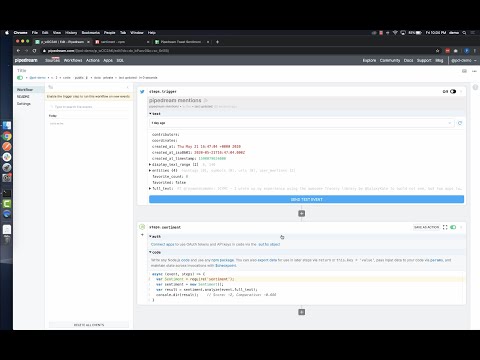What do you want to automate
with Google Sheets and Plivo?
Prompt, edit and deploy AI agents that connect to Google Sheets, Plivo and 3,000+ other apps in seconds.
Trusted by 1,000,000+ developers from startups to Fortune 500 companies
Popular Ways to Connect Google Sheets with Plivo#
Popular Google Sheets and Plivo Triggers#
Emit new event when a new SMS is received. See the docs
Emit new event each time a comment is added to a spreadsheet.
Emit new event each time a row or rows are added to the bottom of a spreadsheet.
Popular Google Sheets and Plivo Actions#
Add a single row of data to Google Sheets. Optionally insert the row at a specific index (e.g., row 2 to insert after headers, shifting existing data down). See the documentation
Add multiple rows of data to a Google Sheet. See the documentation
Get all values or values from a range of cells using A1 notation. See the documentation
Create conditional formatting with color scales or custom formulas. See the documentation
Overview of Google Sheets#
The Google Sheets API allows for the creation, reading, updating, and deletion of data within Google Sheets, enabling a robust platform for spreadsheet management and data manipulation. Through Pipedream, you can craft serverless workflows that respond to various triggers, such as webhook events, emails, or scheduled times, to interact with Google Sheets. This synergy can automate reporting, synchronize data across applications, manage inventory, track leads in a CRM, or even conduct survey analysis by updating and retrieving sheet data on the fly.
Connect Google Sheets#
import { axios } from "@pipedream/platform"
export default defineComponent({
props: {
google_sheets: {
type: "app",
app: "google_sheets",
}
},
async run({steps, $}) {
return await axios($, {
url: `https://www.googleapis.com/oauth2/v1/userinfo`,
headers: {
Authorization: `Bearer ${this.google_sheets.$auth.oauth_access_token}`,
},
})
},
})
Overview of Plivo#
The Plivo API taps into the power of cloud communication, allowing you to programmatically send SMS messages, make voice calls, and manage user verifications among other telephony functions. With Pipedream's serverless platform, you can easily integrate Plivo into workflows that automate these communication tasks, react to incoming messages or calls, and connect with numerous other apps for comprehensive automation solutions.
Connect Plivo#
import { axios } from "@pipedream/platform"
export default defineComponent({
props: {
plivo: {
type: "app",
app: "plivo",
}
},
async run({steps, $}) {
return await axios($, {
url: `https://api.plivo.com/v1/Account/${this.plivo.$auth.auth_id}/Message/`,
auth: {
username: `${this.plivo.$auth.auth_id}`,
password: `${this.plivo.$auth.auth_token}`,
},
})
},
})
Related Videos#



Community Posts#


